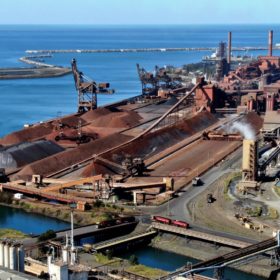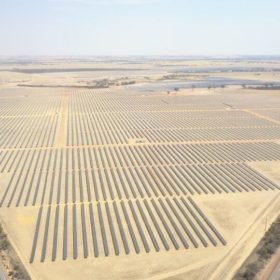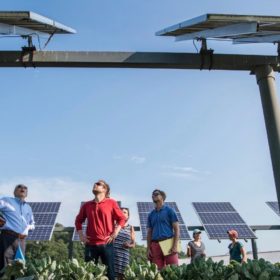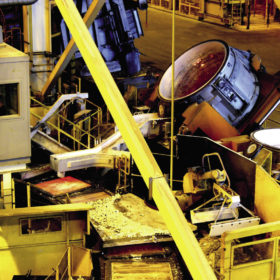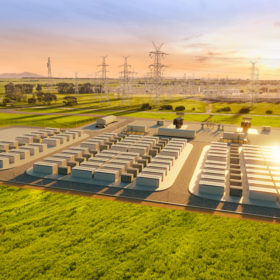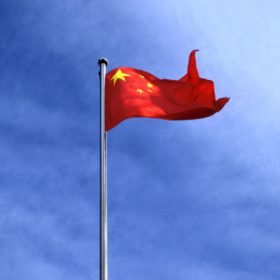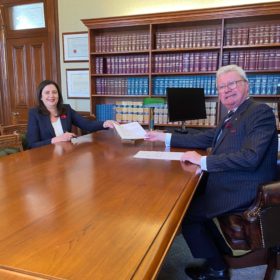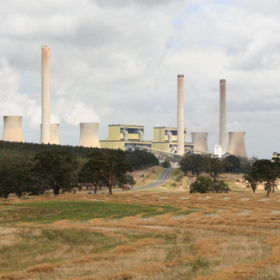BlueScope invests in NSW’s future with $20 million Renewable Manufacturing Zone
Steel giant BlueScope is backing the NSW Government’s ambitious renewable infrastructure plan through a $20 million investment into the development of a Renewable Manufacturing Zone at its Port Kembla site in the Illawarra. The investment seeks to encourage innovation in the renewable sector and work towards the Government’s goal of constructing the state’s Renewable Energy Zones with local materials.
Danish investment fund backs 5 GW WA renewable hydrogen project
Danish investment firm Copenhagen Infrastructure Partners has given its partnership to Hydrogen Renewables Australia as it looks to develop the 5,000 Mw Murchison Renewable Hydrogen Project near Kalbarri in Western Australia. The project looks to utilise Australia’s best wind and solar resources to produce hydrogen fuel for export to nations such as Japan and Korea.
Australia’s biggest super fund commits to 2050 net zero
AustralianSuper, the country’s largest superannuation fund, has followed up from its dumping of shares in Whitehaven Coal with a commitment to a net zero carbon emissions investment portfolio by 2050. The fund, a major global investor, is as yet only a minor investor in the renewable energy sector, but that looks like it will soon change.
Weekend read: Solar needs aluminium, but it has a carbon problem
Few doubt that aluminium frames will be a part of the solar module for some time to come. And with PV manufacturing continuing to scale, the carbon footprint of this versatile metal may prove a sustainability challenge.
AEMO lays out transmission plan to unlock Victorian renewables
The Australian Energy Market Operator (AEMO) has outlined a $3.5 billion strategy to shore up Victoria’s electricity transmission network and system security as the state accelerates towards the legislated target of 50% renewables by 2030.
VIC solar industry braces for post-lockdown release of pent-up demand
As Victorians fly out of lockdown and into the thick of summer the solar industry is preparing for the release of pent-up demand for solar which was hungered for during lockdown but went unsatisfied. pv magazine Australia sat down with AC Solar Warehouse’s Grant Behrendorff to gauge the backlog of installations and talk shop in the approach to a bumper summer.
October’s QLD energy price spike ‘harbinger of things to come’
On Tuesday 13th October 2020 Queensland’s electricity spiked from approximately $25/MWh to $15,000/MWh (the current market price cap) in response to a tripping incident involving the constraint of 11 solar farms and one wind farm. The event is being seen as illustrative of just what needs to be addressed in the design of NEM 2.0.
JA Solar chairman detained by anti-corruption authorities in China
It remains unclear why Chairman Jin Baofang was detained, but the company said its operations will not be affected. The Paper, a Chinese state-owned media outlet, reported that Jin’s detention might be connected to the fall of Liu Baohua, the formal deputy director of the National Energy Administration, which has also been under investigation by the anti-corruption authorities since mid-October.
QLD establishes ministry for hydrogen as Australia moves ahead in the global race for H
In an Australian first, newly re-elected Premier of Queensland Annastacia Palaszczuk has established a ministry for hydrogen in her new government. The move comes amidst a raft of recent hydrogen related policies throughout Australia and reinforces the nation’s determination to lead the global race for a hydrogen economy.
Renewables surge to record share of NEM, coinciding with groundswell of political support
A groundswell of support for renewable energy has swept across the nation and world in the past week with Joe Biden’s victory in the United States followed by the unveiling of the NSW government’s ambitious renewables roadmap and the tabling of independent Zali Steggall’s Climate Change Act. The shifting Zeitgeist coincides with analysis showing record high shares of renewables in the National Energy Network (NEM) are displacing fossil fuels, ultimately cutting the country’s emissions more than the Covid-19 pandemic.
